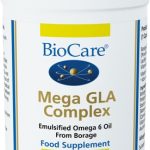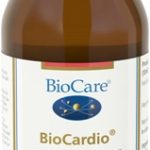It’s drummed into us when we’re young – or at least it should be – that fatty foods aren’t good for us. But, actually, that’s not entirely true; not all ‘fatty’ foods ought to be avoided – in fact, you should definitely incorporate some into your diet. Because foods that naturally contain the ‘Omega’ family of ‘fatty acids’ are very good for you, indeed.
Unfortunately, our bodies don’t produce either the Omega-3 or Omega-6 fatty acids, which is a shame, given they can contribute significantly to human brain development, immunity and regulating blood pressure – among many other things. In fact, because they’re of such use to us, that’s why they’re often referred to as ‘essential fatty acids’ (EFAs); so much can they do to aid our skin, respiration, blood circulation, brain and other organs.
Omega-3
An essential fatty acid, once Omega-3’s digested and spread elsewhere through the body’s blood stream, it can play a critical role in ensuring effective brain function, as mentioned, and may also help your body tackle arthritis1, asthma2, attention disorders3, cardiovascular disease4, cholesterol5, depressive issues6, diabetes7, digestive difficulties, high blood pressure8, macular degeneration, osteoporosis9, skin disorders10 and even some forms of cancer11.
How does it work? Well, the body eventually converts Omega-3 into either docosahexaenoic acid (DHA) or eicosapentaenoic acid (EHA); both of them highly unsaturated fats. Given what clinical studies have proven Omega-3 can positively do for the body then, it’s no surprise that it’s believed people lacking sufficient DHA and EPA levels could be at potential risk from Alzheimer’s disease, attention issues, cystic fibrosis, phenylketonuria (an inborn metabolism error associated with mental disorders) and several other problems.
Naturally occurring in many foods, especially nuts, you can find Omega-3 in the likes of Brazil nuts, canola oil (rapeseed), chia seed oil, grains, flaxseeds and their oil, green leafy vegetables, hempseed oil, mustard seeds, pumpkin seeds, spirulina, wheatgerm oil and raw walnuts and walnut oil.
Omega-6
People tend to consume more of the Omega-6 fatty acid (or linoleic acid) than Omega-3, so it’s important to make sure you get enough of both; as noted above, they’re not referred to as essential fatty acids for nothing – on its own, Omega-6 is believed to promote good skin, heart, circulation and nerve function.In fact, some expert opinion suggests that, perhaps due to how much vegetable oil people consume nowadays, many get a 16:1 ratio of Omega-6 to Omega-3, which may be unhealthy12. Thus, a number of experts instead suggest aiming for a 1:1 ratio of the two, if possible12.
Omega-6 naturally occurs in a large number of grains, nuts, oils and green leafy veggies, among them broccoli, chia seed oil, cottonseed oil, grapeseeds, hempseed oil, kale, lettuce, olive oil, pistachios, pumpkin seeds, purslane, safflower oil, sesame oil, sunflower oil and wheatgerm, as well as some raw vegetable oils – but raw and cold pressed vegetable oil’s best as cooking the oil tends to negate its positive Omega-6 effects.
Omega-9
Another of the Omega fatty acids worth mentioning, Omega-9 is classed as a non-essential fatty acid. Monounsaturated oleic and stearic acid, as it’s scientifically referred to, is ‘non-essential’ because it’s naturally created – or synthesised – in the human body; at least, when the body’s consuming enough Omega-3 and Omega-6 it is.
If you’re not receiving satisfactory amounts of those two fatty acids, then it’s wise to alter your diet in order to ensure you’re resplendent in Omega-9 as well – not least as it’s believed to helpmaintain cardiovascular health and immune function. To that end then, Omega-9 fatty acids occur naturally in the likes of almonds, avocados, cashew nuts, chia seed oil, hazelnuts, macadamias, pecans, pistachios and olives and olive oil.
Fatty acid supplements
Unfortunately, of course, it may be that for whatever reason you’re not able to adjust your diet as much you’d like to get your fill of essential and non-essential fatty acids (for instance, should you have a nut allergy). Fear not, though, for salvation can be found in supplements – indeed, do check out the fatty acid section on our website because not only are the following three Omega-related supplements available from us at The Finchley Clinic, but many more as well:

Complete Omegas 3:6:7:9 Gel Caps – easy to swallow gelatine capsules that provide the optimal ratio of the Omega fatty acids, including Omega-7 (from sea buckthorn), which on its own helps to nourish and replenish skin and mucous membrane tissue.

Mega GLA Complex – contains Omega-6, along with Vitamin E to improve stability, the latter also acting as an antioxidant to help protect cells from oxidative stress.

BioCardio – derived from anchovies and sardines and flavoured with natural orange oil, this product can be consumed neat or mixed with water or juice to provide both EPA and DHA direct, crucial for maintaining heart health.
References:
1. Fortin P. R., Lew R. A., Liang M. H., Wright E. A., Beckett L. A., Chalmers T. C. and Sperling R. I. ‘Validation of a meta-analysis: the effects of fish oil in rheumatoid arthritis’. J Clin Epidemiol. Nov 1995. 48 (11): 1379-90.
2. Agency for Healthcare Research and Quality. ‘Health Effects of Omega-3 Fatty Acids on Asthma’. March 2004. Publication No. 04-E013-1.
3. Richardson A. J. and Montgomery P. ‘The Oxford-Durham study: a randomized, controlled trial of dietary supplementation with fatty acids in children with developmental coordination disorder’. Pediatrics. May 2005. 115 (5): 1360-6.
4. Wang C., Harris W. S., Chung M., Lichtenstein A. H., Balk E. M., Kupelnick B., Jordan H. S. and Lau J. ‘n-3 Fatty acids from fish or fish-oil supplements, but not alpha-linolenic acid, benefit cardiovascular disease outcomes in primary- and secondary-prevention studies: a systematic review’. Am J Clin Nutr. July 2006. 84 (1): 5-17.
5. McKenney J. M. and Sica D. ‘Prescription omega-3 fatty acids for the treatment of hypertriglyceridemia’. Am J Health Syst Pharm. March 2007. 64 (6): 595-605.
6. Su K. P., Huang S. Y., Chiu C. C. and Shen W. W. ‘Omega-3 fatty acids in major depressive disorder. A preliminary double-blind, placebo-controlled trial’. Eur Neuropsychopharmacol. Aug 2003. 13 (4): 267-71. Erratum in: Eur Neuropsychopharmacol. March 2004. 14 (2): 173.
7. Mita T., Watada H., Ogihara T., Nomiyama T., Ogawa O., Kinoshita J., Shimizu T., Hirose T., Tanaka Y. and Kawamori R. ‘Eicosapentaenoic acid reduces the progression of carotid intima-media thickness in patients with type 2 diabetes’. Atherosclerosis. March 2007. 191 (1): 162-7.
8. Morris M. C., Sacks F. and Rosner B. ‘Does fish oil lower blood pressure? A meta-analysis of controlled trials’. ACP J Club. Jan-Feb 1994.120 Suppl 1: 8-10.
9. Vanek C. and Connor W. E. ‘Do n-3 fatty acids prevent osteoporosis?’. Am J Clin Nutr. March 2007. 85 (3): 647-8.
10. University of Maryland Medical Center. ‘Omega-3 fatty acids overview’. The University of Maryland Medical System.
11. Augustsson K., Michaud D. S., Rimm E. B., Leitzmann M. F., Stampfer M. J., Willett W. C. and Giovannucci E. ‘A prospective study of intake of fish and marine fatty acids and prostate cancer’. Cancer Epidemiol Biomarkers Prev. Jan 2003. 12 (1): 64-7.
12. Simopoulos, A. P. ‘Evolutionary aspects of diet, the omega-6/omega-3 ratio and genetic variation: nutritional implications for chronic diseases’. Biomedicine & Pharmacotherapy. July 2006. 60 (9): 502–507.



